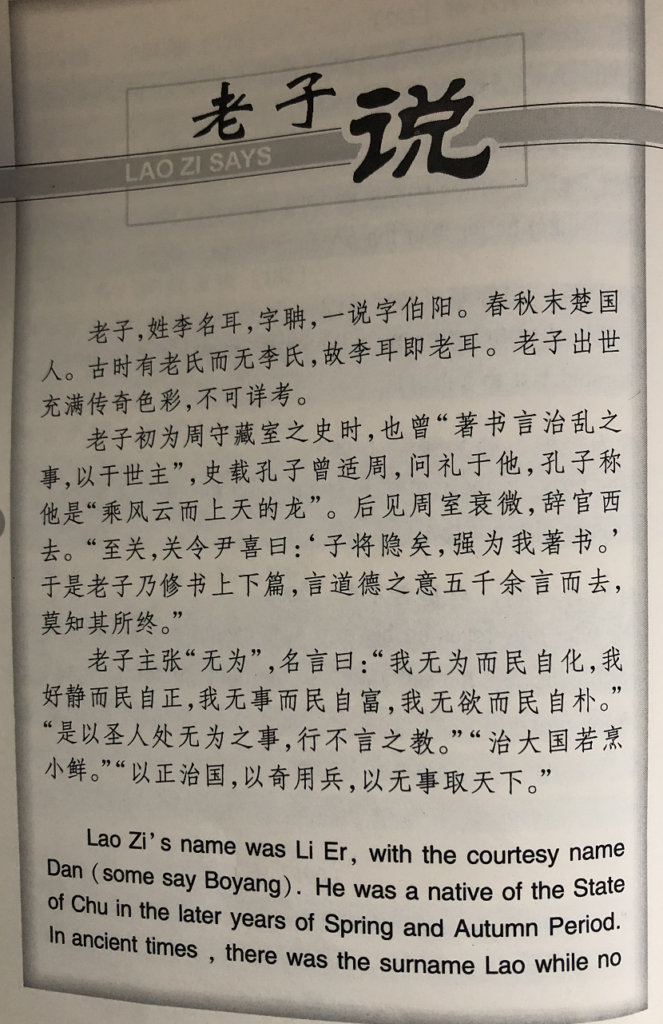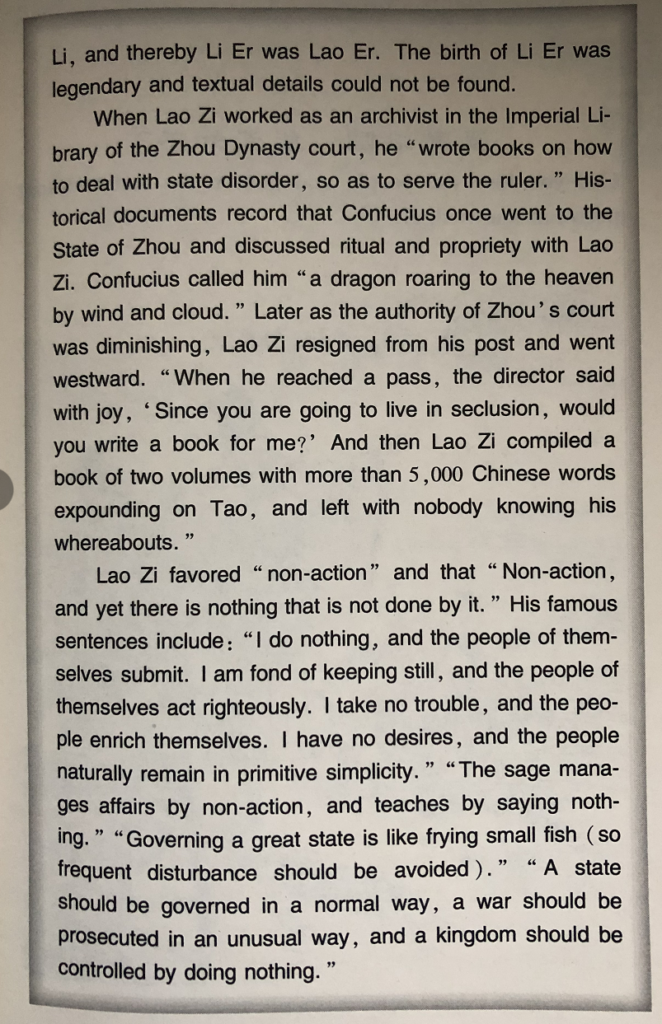

Lao Z’ s name was Li Er, with the courtesy name Dan (some say Boyang). He was a native of the State of Chu in the later years of Spring and Autumn Period. In ancient times,there was the surname Lao while no Li ,and thereby Li Er was Lao Er. The birth of Li Er was legendary and textual details could not be found.
When Lao Zi worked as an archivist in the Imperial Library of the Zhou Dynasty court, he “wrote books on how to deal with state disorder, so as to serve the ruler.” Historical documents record that Confucius once went to the State of Zhou and discussed ritual and propriety with Lao Zi. Confucius called him ” a dragon roaring to the heaven by wind and cloud. ” Later as the authority of Zhou’ s court was diminishing, Lao Zi resigned from his post and went westward. “When he reached a pass, the director said with joy, . Since you are going to live in seclusion, would you write a book for me?’ And then Lao Zi compiled a book of two volumes with more than 5 ,000 Chinese words expounding on Tao, and left with nobody knowing his whereabouts.”
Lao Zi favored ” non-action” and that ” Non-action, and yet there is nothing that is not done by it. ” His famous sentences include: “I do nothing, and the people of them- selves submit. I am fond of keeping still, and the people of themselves act righteously. I take no trouble, and the people enrich themselves. I have no desires, and the people naturally remain in primitive simplicity. ” The sage manages affairs by non-action, and teaches by saying nothing.” ” Governing a great state is like frying small fish ( so frequent disturbance should be avoided).” ” A state should be governed in a normal way, a war should be prosecuted in an unusual way, and a kingdom should be controlled by doing nothing. “